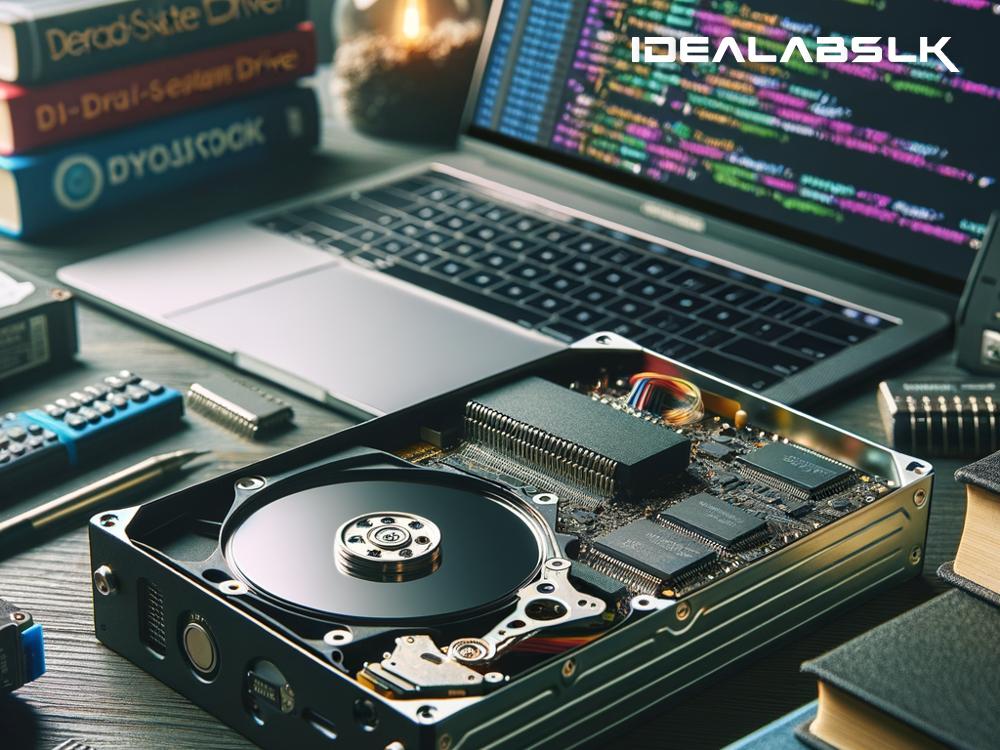Choosing Between SSD and HDD for Development Work: A Simple Guide
When you're diving into the world of development work, be it coding, creating apps, designing websites, or any type of software development, the type of storage you choose for your computer can have a substantial impact on your productivity and work experience. The two main contenders in the storage realm are Solid State Drives (SSD) and Hard Disk Drives (HDD). But what's the difference, and how do you choose the right one for your development needs? Let’s break it down in simple English.
What's an SSD?
An SSD, or Solid State Drive, is like a super-fast electronic brain for storing all your stuff. Unlike the traditional HDD, it doesn't have any moving parts. Instead, it uses flash memory, which means it can access and move your files around much faster. It's like having a super-quick butler who can instantly find and fetch whatever you need, be it a document, a program, or anything else on your computer.
What's an HDD?
An HDD, or Hard Disk Drive, is the older, more traditional way of storing things on a computer. It works a bit like a record player, with a spinning disk inside and a needle that reads and writes your information. Because of these moving parts, it's generally slower at finding and fetching your files compared to an SSD. But it can store a lot of stuff without costing a fortune.
Speed and Performance
For development work, speed is often key. You might be running multiple programs at once, like your coding environment, browsers, databases, and maybe a server emulator. An SSD can dramatically cut down the time it takes to launch these programs, compile code, and load projects. Imagine clicking on your application and having it ready to go in a blink of an eye, or compiling large chunks of code in seconds rather than minutes. That's where an SSD shines.
On the contrary, with an HDD, you might find yourself waiting longer for things to load or compile. While the difference of a few seconds might not seem like much, it adds up over the course of a day and can disrupt your flow or thought process.
Reliability and Durability
Since SSDs have no moving parts, they're less prone to damage from drops or jolts. This can be particularly important if you're a developer on the go, using a laptop that might get bumped around. Additionally, SSDs tend to handle heat and energy use better, making them more reliable over time.
HDDs, with their spinning disks, are more vulnerable to physical damage and wear out over time, which can be a risk for losing precious work if not backed up properly.
Capacity and Price
One major factor to consider is how much you're willing to spend and how much storage you need. HDDs are generally cheaper and come in larger capacities. If you're working with huge datasets, doing video editing on the side, or just need to store a ton of files, an HDD might give you more bang for your buck.
SSDs, although getting cheaper, still cost more per gigabyte than HDDs. However, for most development work, you might find that a smaller, more affordable SSD is sufficient for your operating system, programs, and current projects, while larger files can be stored on an external drive or cloud storage.
Making the Choice
To decide, consider your work style and needs. If speed, efficiency, and reliability are your top priorities and you mostly deal with coding or application development, investing in an SSD could significantly benefit your workflow. It's becoming a standard choice for most developers for good reasons.
However, if you're on a tight budget, need tons of storage, or your work involves less frequent access to massive files (like large-scale video editing or 3D modeling), an HDD could still serve you well, especially as a secondary storage option.
A Hybrid Approach
Can't decide? The good news is you don't necessarily have to. Many developers opt for a hybrid approach—using an SSD for their operating system, applications, and current projects for speed, and an HDD for long-term storage of larger files. This way, you can enjoy the best of both worlds: the speed and efficiency of an SSD, with the large, cost-effective storage capacity of an HDD.
Choosing the right storage for development work isn't just about capacity or cost—it's about matching the technology to your specific needs to create an efficient, smooth workflow that helps you focus on the creative and technical aspects of your work. Whether you choose an SSD, an HDD, or a combination of both, understanding the strengths and limitations of each can help you make an informed decision that optimizes your development process.

